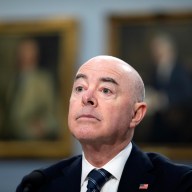By Crispian Balmer and Gavin Jones
ROME (Reuters) – Members of the anti-establishment 5-Star Movement overwhelmingly backed a proposed coalition with the center-left Democratic Party (PD) on Tuesday, opening the way for a new government to take office in the coming days.
In an online ballot, 79.3% of 5-Star supporters voted in favor of joining forces with the PD, their long-time political foes, while 20.7% opposed the alliance, party leader Luigi Di Maio told reporters.
The vote means Prime Minister Giuseppe Conte can now complete work on the new administration and present President Sergio Mattarella with a list of suggested ministers.
“I am very proud of today’s vote and very proud of the government that is to come,” Di Maio told reporters after the roughly 80,000 ballots were counted.
Once Mattarella has agreed to Conte’s cabinet, the prime minister will have to win confidence votes in both houses of parliament before the government can officially start work.
As voting got under way earlier in the day, 5-Star and PD unveiled a shared, 26-point policy program for their mooted coalition, putting an expansionary 2020 budget at the top of their agenda.
5-Star, created a decade ago out of opposition to the PD, agreed to form a new administration with its former rival to head off a snap election after its previous coalition with the far-right League collapsed last month.
Italian benchmark 10-year bond yields hit record lows on Tuesday in a sign that investors believed the new administration would take office, heading off the risk of an early election and prolonged political instability.
“The results (of the 5-Star ballot) are quite strong,” said Chris Scicluna, head of economic research at Daiwa Capital Markets in London. “This is the kind of result that is going to give investors confidence in the new coalition, at least for the next few months, and in its ability to deliver a budget that is likely to be challenging.”
BUDGET FLEXIBILITY
The 5-Star and PD said they would use the coming budget to help the stalled economy grow, but also promised that they would not endanger public finances.
Italy has the second-largest debt burden in the European Union as a proportion of economic output, and the pact called for greater flexibility from Brussels to overcome the “excessive rigidity” of existing budget rules.
Emphasizing social justice, the two parties pledged to introduce a minimum salary, avoid a VAT hike set for January and boost spending on education, research and welfare. The program also called for a web tax on multinationals and the creation of a public bank to help boost development in the poorer south.
5-Star and PD committed to re-writing Italy’s conflict of interest laws, a move that former prime minister Silvio Berlusconi has always sought to head off, fearing it could impact negatively on his Mediaset
The two parties also promised a “revision” of Italy’s motorway concessions. The vague wording left open the hope for Italy’s Atlantia
Having agreed on the outlines of a coalition pact, the two sides still have to decide on ministers, with uncertainty surrounding the role of 5-Star leader Di Maio.
He served as deputy prime minister, industry minister and labor minister in the previous administration, but looks unlikely to keep any of those portfolios in the new cabinet.
(Additional reporting by Angelo Amante, Giuseppe Fonte and Giselda Vagnoni in Rome and Dhara Ranasinghe in London; Editing by John Stonestreet and Alison Williams)
















